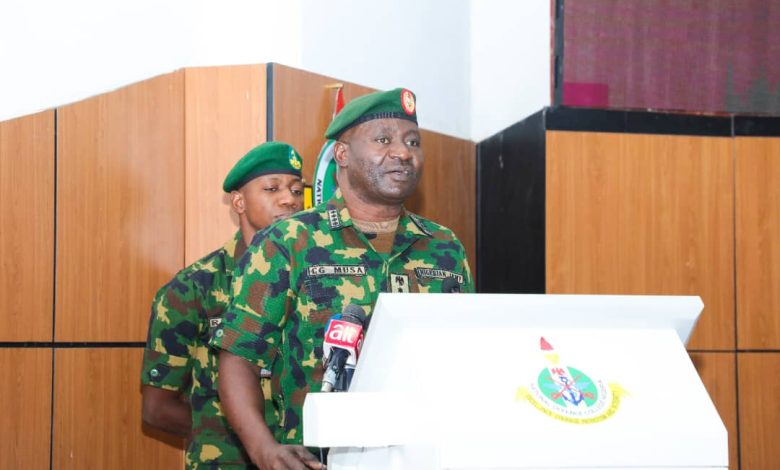
The Chief of Defence Staff, General Christopher Musa, has explained why terrorism is yet to end despite the huge budgetary allocation the military receives every year.
In an interview on AriseTV, General Musa said the military still adequate equipment to fight the terrorists, due to years of inadequate release of funds for defense.
The defense chief also blamed civilians for conniving with terrorists and supporting them with supplies had been frustrating the military’s efforts to end the war.
Speaking on the rising defence budget and the raging insecurity, he said there was a difference between what was budgeted and what was released.
In the 2024 Appropriation Bill, N3.25tn was budgeted for defence, while in 2023, defence got N2.98tn, representing 13.4 per cent of the N21.83tn budget.
He said: “In the past, you heard large sums of money approved for the military but the question is, how much do we get? That is very important. Also, we don’t manufacture any of the items we use; we buy them in dollars. If you look at the amount released and you convert to dollars, how much is it?
“For instance, the $1bn released in the past, the 12 Tucano (fighter) jets that were bought cost over $600m. How much do you buy MRAP (Mine-Resistant Ambush Protected vehicle), Armoured Personnel Carrier, tanks, ships, aircraft, so you find out that the money released, when you convert them to dollars, you are not even getting much. Every piece of ammunition we buy is in foreign currency and we buy them in billions because we use them quickly.
“Yes, we cannot get all we need; no country does. The President (Bola Tinubu) has signed the bill for DICON (Defence Industries Corporation of Nigeria). We must produce what we need. Even with your money, you cannot buy most of the equipment you need off the shelf. You have to order for them and wait before you get them and that takes time. It is when the industrial complex comes on stream and we start producing what we need, it will be a lot better for us. We will continue to move, and as much as we get equipment, we will continue pushing.”
On how connivance by some Nigerians had undermined the efforts of the military, he stated: “We appeal to all Nigerians to cooperate. Security is everybody’s responsibility. I give you my challenge while in the North-East; in some places you find out that there are people even supporting them (the terrorists), giving them equipment and food. Every day, we fight them to stop taking to them fertilizer, urea and things that could make them fix Improvised Explosive Devices. It’s a challenge.
“We have Nigerians that are also doing so much to trade with them; carrying fuel and food to them. If we all pull together and stop this thing, they will not survive. So, it’s a holistic thing and not only for the armed forces alone. This is not an armed forces war; this is a Nigerian war, and I want Nigerians to take ownership of it.”
Asked when Nigerians should expect an end to the terrorism, he stated, “That is an elephant in the room. My take is that no country should allow terrorism to start, because it is difficult to eradicate, because the centre of gravity of the terrorist is their ideology, and their ideology is in their mind, so changing the mindset is what we require.”
He also called on opinion leaders not to play to the gallery by making untrue comments that could excite the terrorists and demoralise the troops, saying, “Once they demoralise the troops, they will be scared to react, and we don’t want that to happen. We know they have been doing a good job and we want to encourage them to continue, but then we will be more careful.”
He described as unfortunate claims that the attack was deliberately carried out to wipe out a certain ethnic nationality, adding, “We are putting in our best to make sure that we defeat the terrorists, and mistakes do happen. It has nothing to do with tribe or religion, but anyone who has that kind of a thought is not being truthful or sincere. That community is a mixture of Christians and Muslims and different ethnic groups. Sometimes, when people don’t have full information, they tend to react differently.”
He lamented that the proximity of civilians to the terrorists had also slowed down the war against terror, as there were times air strikes were called off so as not to hurt civilians.
“We have had series of times that we had to call off strikes because we felt civilians were involved. I can tell you for free that this operation is prolonged because most times when we go to strike and there are civilians we have to avoid striking,” he added.
